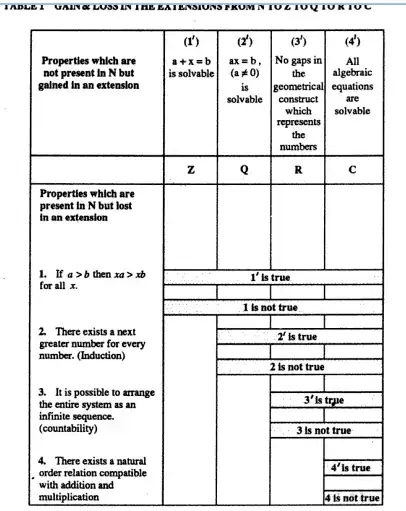The imaginary number implies $i=\sqrt{-1}$
But this this not say whether $i$ is larger or smaller or equal to $0$ So i wonder if $i$ can be larger or smaller than $0$ and if so how do we see it
The imaginary number implies $i=\sqrt{-1}$
But this this not say whether $i$ is larger or smaller or equal to $0$ So i wonder if $i$ can be larger or smaller than $0$ and if so how do we see it

This is the first disadvantage of complex numbers. We cannot compare them on the basis of their size. Whenever we extend our set of numbers, we lose a property and also gain one.
These are the general rules of extension between smaller and larger systems.
(1) We preserve most of the properties of the smaller system;
(2) We achieve something extra in the larger system - something which was not available in the smaller system and; and
(3) We 'pay a price' for this extension bu losing some property which was present in the smaller system.
The extensions are $N$ to $Z$; $Z$ to $Q$ (Rational numbers), $Q$ to $R$, $R$ to $C$. One major advantage of extension is solvability of equations we attain.
For example, in the first extension, the equation of form $a+x=b$ is solvable. Then $ax=b \ (a\neq0)$. Then, no gaps in the geometrical construct which represents the numbers. Then, all algebraic equations are solvable.